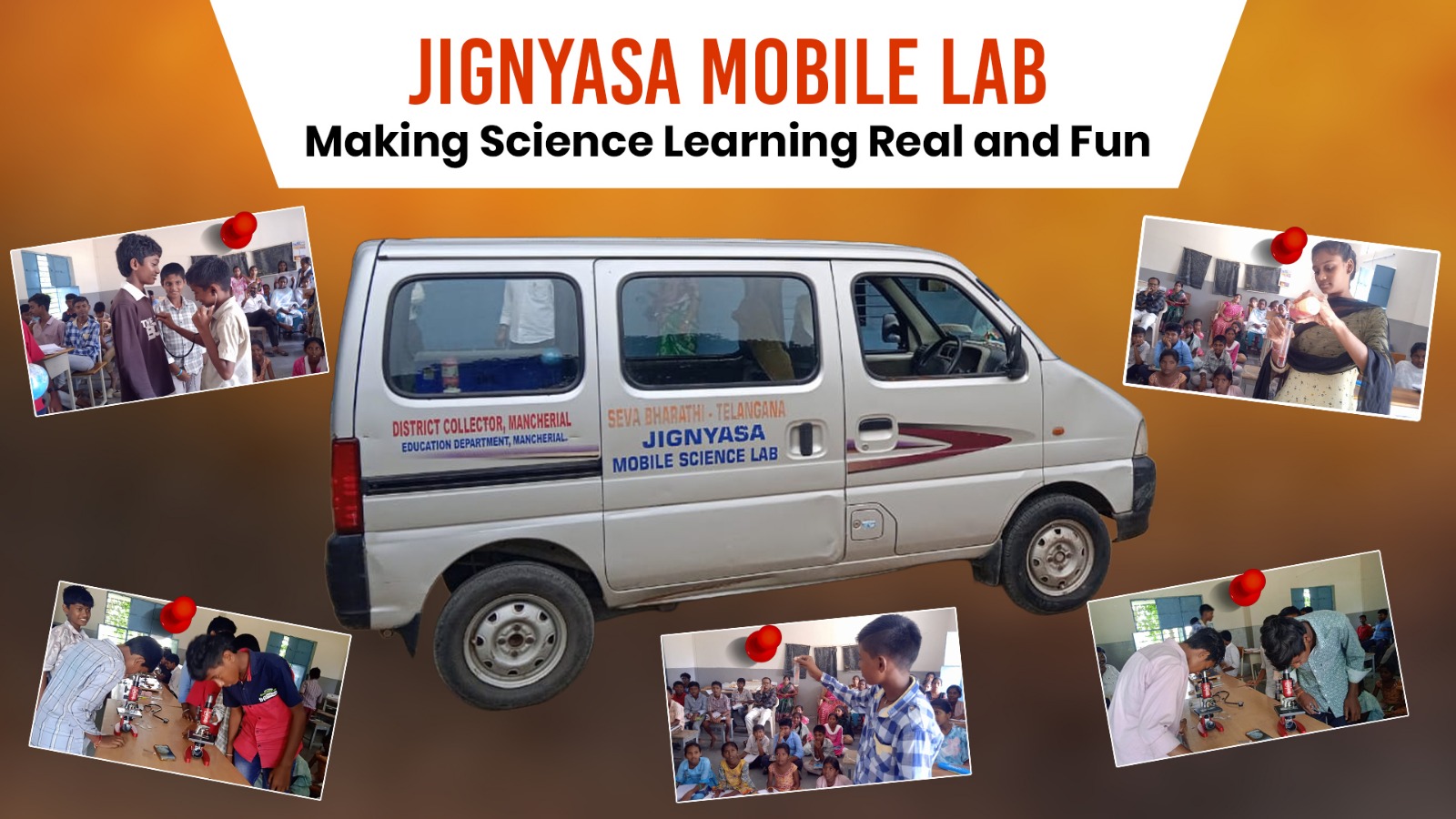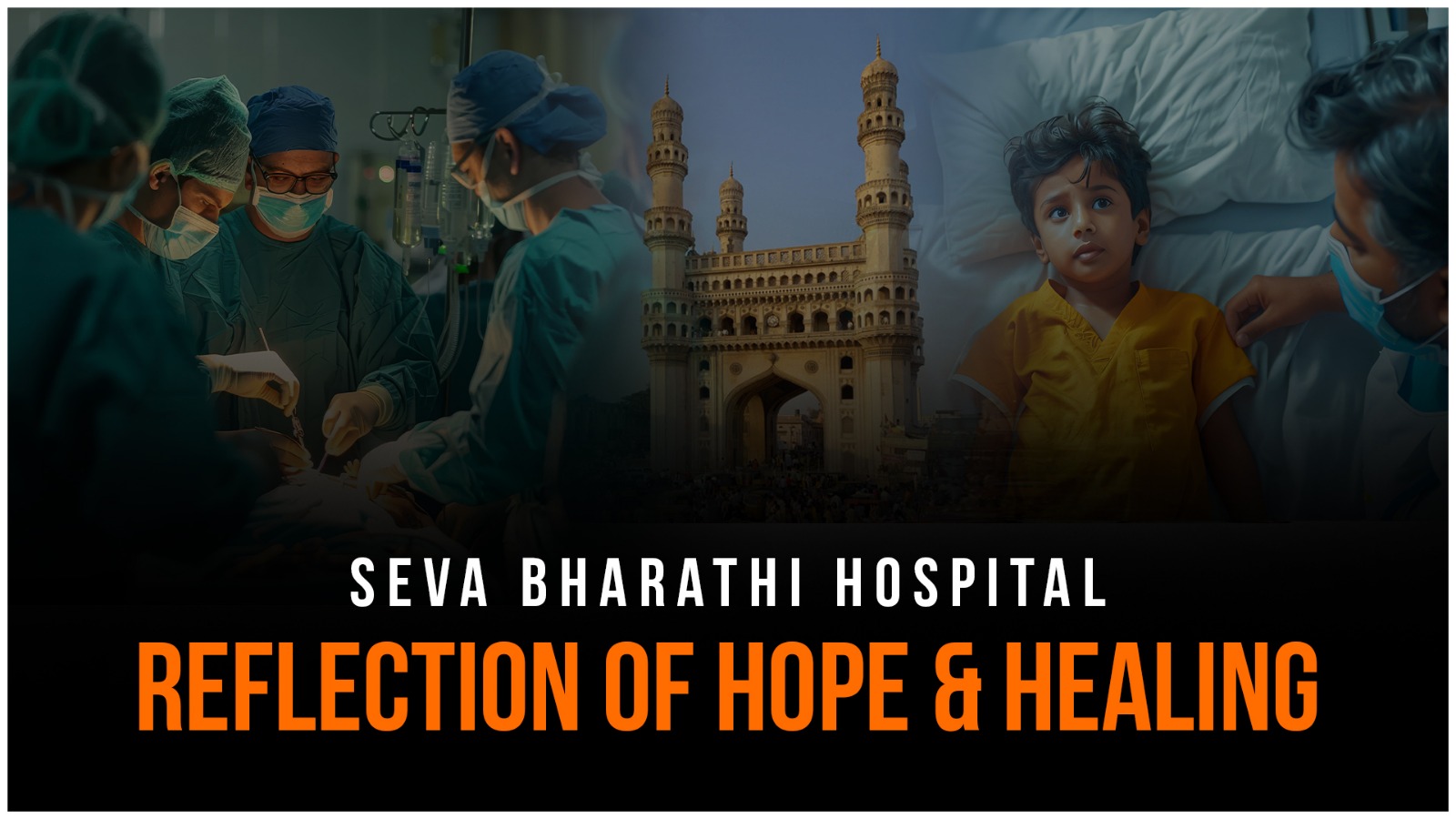
Most government schools in the rural Mancherial district lack proper science laboratories. Students read about experiments in textbooks but rarely get to perform them. This gap between theoretical knowledge and practical experience affects how children understand and engage with science.
Jignyasa Mobile Science Lab was established by Seva Bharathi in 2020 to tackle this issue. The mobile lab is equipped with demonstration tools, working models, and scientific instruments for experiments in biology, chemistry, and physics. Throughout the Mancherial district, it visits one government school every day and makes its way to 20–25 schools each month.
At each school, trained instructors conduct direct experiments with students. Students work with models, ask questions, observe chemical reactions, and engage in hands-on activities. By emphasizing experiential learning, the method helps students grasp scientific ideas through action rather than just reading about them.
Teachers at participating schools report that students’ interest in science has increased. Students actively participate in experiments, which increases their curiosity and comprehension. In certain schools, students have produced science projects that won awards at the state level.
Jignyasa has been serving 25,000 students in the Mancherial district since 2020. For many of these children, the mobile lab is their first opportunity to conduct authentic scientific experiments.
The program addresses educational inequality in a practical way. Rural schools usually lack well-equipped laboratories and other resources, whereas urban schools frequently do. Jignyasa delivers the required supplies and instruction straight to rural schools, eliminating the need for them to construct infrastructure.
This approach reflects Seva Bharathi’s broader commitment to educational access. Neither a child’s residence nor the resources available to their school should determine the quality of their science education. Through the program’s mobile science education approach, rural students are guaranteed to have access to the same experiential learning opportunities as their urban counterparts.
The influence extends beyond learning right away. Early exposure to science can influence students’ academic interests and future career choices. While some may choose to pursue careers in science, others will just continue to use their systematic thinking and problem-solving abilities, which are useful in any field.
Jignyasa has been operating for four years and still makes daily trips throughout the Mancherial district. Every school visit is an opportunity to make science interesting, approachable, and understandable for students who might only otherwise read about it in textbooks.
According to Seva Bharathi, Jignyasa demonstrates the need for proactive intervention in order to achieve educational equity. When resources are unable to reach schools, the mobile lab model demonstrates that resources can reach schools. Making sure that a child’s education and future opportunities are not constrained by a lack of infrastructure is a practical solution to a real problem.



